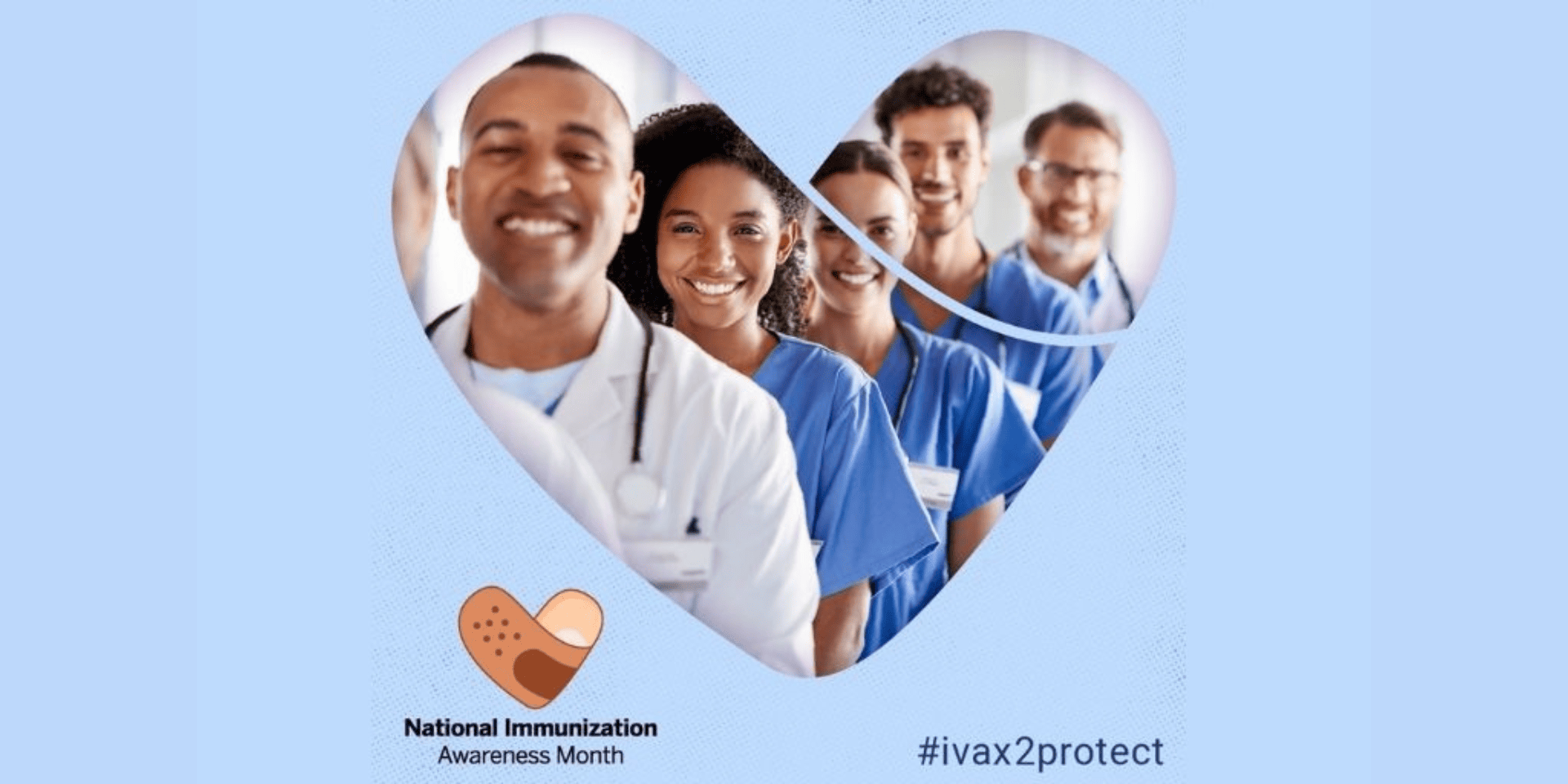
The Centers for Disease Control and Prevention (CDC) has designated August as National Immunization Awareness Month (NIAM), an annual observance highlighting the importance of vaccination for people of all ages.
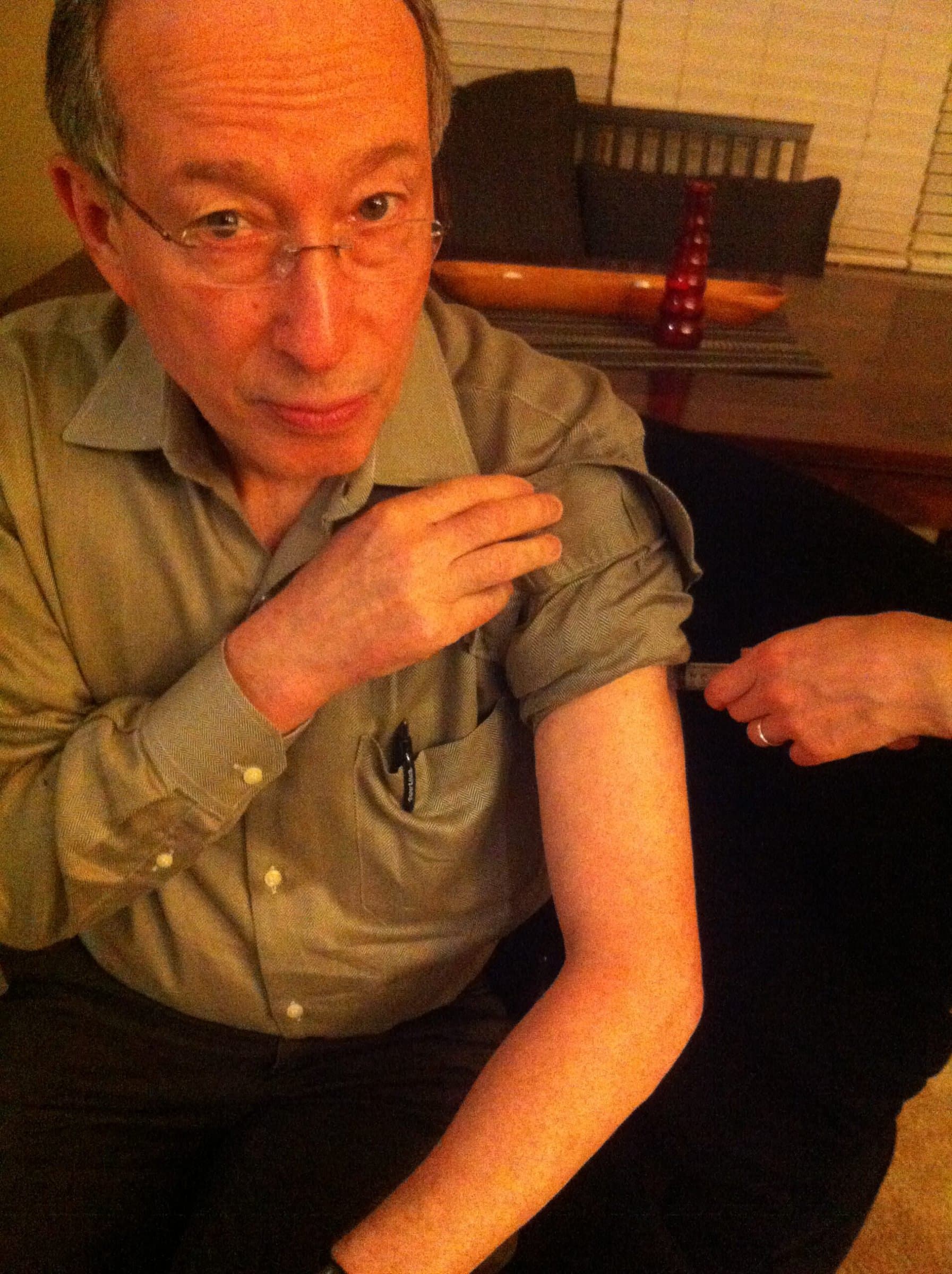
Special thanks to NFID Immediate Past-President Walter A. Orenstein, MD, associate director at Emory Vaccine Center and professor of medicine, pediatrics, and global health at Emory University, for this guest post on the global effort to promote vaccine acceptance, to bring NIAM 2019 to a close.
Vaccines are one of the greatest tools used to prevent infectious diseases and their serious complications. CDC recommends all children in the US get vaccinated against 16 infectious diseases—diphtheria, tetanus, pertussis (whooping cough), polio, pneumococcal disease, rotavirus, Haemophilus influenzae type b (Hib), hepatitis A & B, measles, mumps, rubella, varicella (chickenpox), influenza, human papillomavirus (HPV), and meningococcal disease. Not only do vaccines help prevent infectious diseases, they can also can prevent certain types of cancers. Hepatitis B vaccine, for example, can prevent liver cancer and HPV vaccine can prevent 6 types of cancer including cervical cancer and oral cancer.
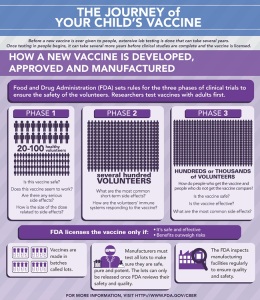 Before a vaccine is licensed and recommended for use, it goes through a complex process to ensure it is both safe and effective. This includes preclinical work in the laboratory to demonstrate the vaccine can induce a protective immune response, followed by three phases of clinical trials in humans. This often takes more than a decade, and many vaccine candidates do not successfully make it to licensure. For example, we have been trying to develop a vaccine against human immunodeficiency virus (HIV), for almost four decades and although there are some promising candidates, none yet has met criteria for licensure and recommended use.
Before a vaccine is licensed and recommended for use, it goes through a complex process to ensure it is both safe and effective. This includes preclinical work in the laboratory to demonstrate the vaccine can induce a protective immune response, followed by three phases of clinical trials in humans. This often takes more than a decade, and many vaccine candidates do not successfully make it to licensure. For example, we have been trying to develop a vaccine against human immunodeficiency virus (HIV), for almost four decades and although there are some promising candidates, none yet has met criteria for licensure and recommended use.
But despite all the evidence of safety and effectiveness of currently recommended vaccines, vaccine hesitancy has become a global problem. The World Health Organization (WHO) has listed vaccine hesitancy as one of the top 10 threats to global health. Vaccines have become victims of their own success, with many parents no longer fearing the diseases vaccines were designed to prevent. Unfortunately, misinformation about vaccine safety is widely promulgated, largely through the internet and social media.
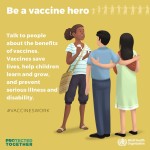 The Salzburg Statement on Vaccination Acceptance is aimed at revitalizing acceptance throughout the world and has been signed by 60+ public health leaders from Europe, Asia, Australia, Africa, and the Americas. The Statement recognizes that the overwhelming majority of parents and healthcare professionals support childhood immunization. But a global campaign of misinformation, driven by social media, has led many parents, especially in close-knit communities, to refuse vaccines for their families. Refusing vaccination not only puts their own children at risk, but also affects others in the community, including vulnerable children too young to be vaccinated. Preventing exposure to a vaccine-preventable pathogen (germ) through high vaccination rates helps cut off person-to-person transmission.
The Salzburg Statement on Vaccination Acceptance is aimed at revitalizing acceptance throughout the world and has been signed by 60+ public health leaders from Europe, Asia, Australia, Africa, and the Americas. The Statement recognizes that the overwhelming majority of parents and healthcare professionals support childhood immunization. But a global campaign of misinformation, driven by social media, has led many parents, especially in close-knit communities, to refuse vaccines for their families. Refusing vaccination not only puts their own children at risk, but also affects others in the community, including vulnerable children too young to be vaccinated. Preventing exposure to a vaccine-preventable pathogen (germ) through high vaccination rates helps cut off person-to-person transmission.
The intent of the Statement is to improve childhood vaccine coverage through expanded public dialogue that will enable individuals, communities, and government leaders to better understand the role of vaccines, make more informed choices about their use, and sustain investment in expanded access to these vaccines globally.
The Salzburg Statement calls upon:
- Social media organizations and major search engines to:
- Distinguish “levels of evidence” in the vaccine information they provide to improve identification of disproven/inaccurate, false claims about vaccine safety for users that have led to the return of childhood diseases
- Include information from robust scientific sources
- Governments, policymakers, advocacy groups, educators, and philanthropists to:
- Support laws that mandate childhood vaccination when they are likely to improve public health and to support more research on behavioral and social determinants of vaccination, along with evidence-based communication that will build vaccine literacy
- Widely disseminate reliable, accurate vaccine information in plain language through mass and social media, delivered by trusted sources at all levels of society
- Promote “community protection” in public health law and communications and restore broad societal trust in vaccination
- Healthcare professionals and educators to:
- Correct misleading information on social media and in community settings
- Counsel parents and children to reassure them about vaccine safety
- Commit to listening to and understanding barriers to vaccination and concerns of parents to make vaccination services more accessible and user-friendly
- Parents and guardians to:
- Seek information about vaccines from sources that have documented scientific and medical expertise
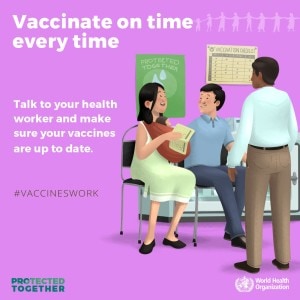 Vaccinations save lives, but vaccines are only effective if they are actually used. A vaccine dose that remains in the vial is 0 percent effective no matter what the efficacy was found to be in clinical trials. Please join the fight against infectious diseases and help increase vaccine acceptance in your community!
Vaccinations save lives, but vaccines are only effective if they are actually used. A vaccine dose that remains in the vial is 0 percent effective no matter what the efficacy was found to be in clinical trials. Please join the fight against infectious diseases and help increase vaccine acceptance in your community!
To join the conversation and get the latest news on infectious diseases, follow NFID on Twitter using the hashtag #IVax2Protect, like us on Facebook, follow us on Instagram, join the NFID Linkedin Group, and subscribe to receive future NFID Updates.
Related Posts

Harnessing the Power of Local Data
NFID dashboard aims to empower stakeholders with hyperlocal data to increase US adult respiratory vaccine uptake
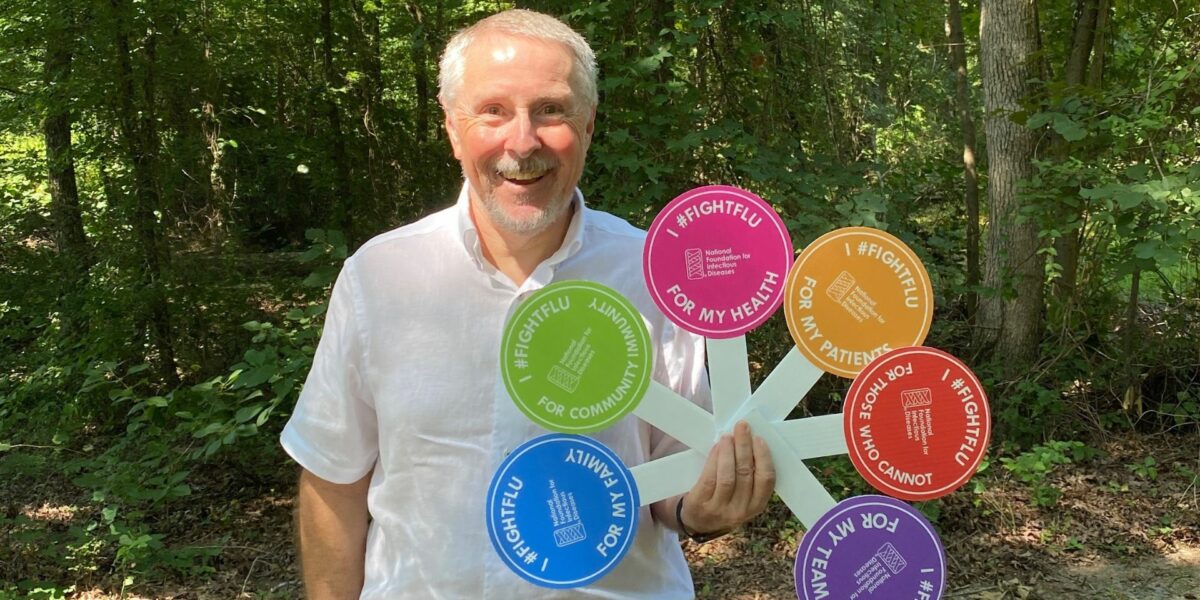
Overcoming Barriers to Vaccination
NFID Medical Director Robert H. Hopkins, Jr., MD, shares his thoughts on communication tactics and other strategies to help overcome barriers to vaccination
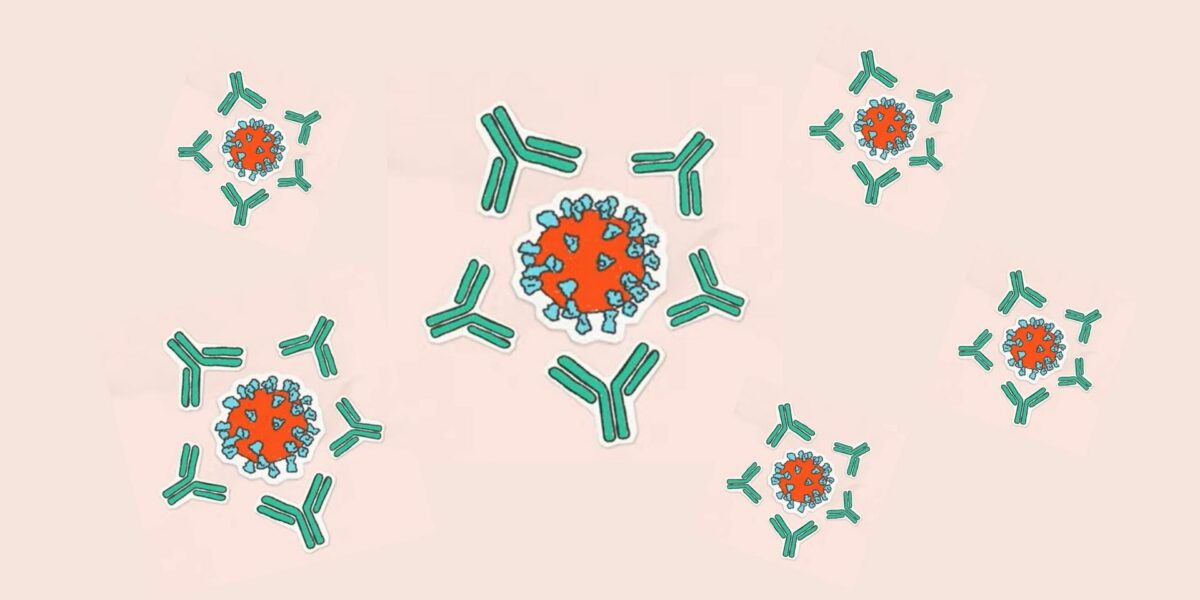
A Game Changer for Disease Prevention and Treatment
As diseases continue to emerge, reemerge, and evolve, the development and use of advanced interventions such as monoclonal antibodies are critical for protecting public health …
